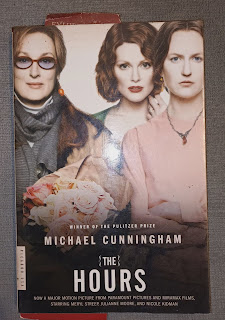Hopefully, this time, because I am desperate, I will accomplish everything I will jot down here:
1. I should be able to plot at least one chapter [or two] a month for Bianca's Diary (tentative title) and finish writing by April, in time for Editing and Layout in May. The plan is to finish it in time to get a writing grant in June and publish the YA novel in September 2024.
2. I should be able to blog at least three essays on my '60s journey -- aiming to develop a community of readers for the "Things Book."
3. I should be able to blog a review of any book I am reading -- aiming to develop a community of readers and friends for the YA novel I am writing. I should be able to read all the books I've listed in October of this year.
4. I should be able to read a novel by a Filipino author -- also to upgrade my grasp of Philippine Literature.
5. I should be able to read and do some ART hobby, maybe painting -- aiming to help me build a new skill -- perhaps toward illustrations of Children's books.
FOR NUMBER 1 - Right now, I have eight chapters that aren't yet ordered the way they should [this organization will happen once I've determined all the chapters.] I have been learning that I am not a plotter, that is, my story happens as I write them, and so thinking and writing are always simultaneous -- that is, I can never plot or plan my chapters, and the stories seem to be lodged somewhere in my system and are only waiting to be tapped. Writing then is really slow and kind of forced in the beginning, until every thought has landed on paper and is ready for placement in the yet incoherent narrative.
FOR NUMBER 2 - This is the first blog on the '60s journey thing, however, I wanted to keep this blog more formal and still in the THINGS mode of essaying, so I need to focus on more objects around me, This is difficult only because I am not sure about what other mundane objects will yield some deep meditations. Later thoughts on the THINGS project involve planning and research of an end product, that is 'initially,' BAGS because I like them, after all, in the schema of everyday commute, this is a most necessary accessory. They will be manufactured and sold eventually. What pops up as a brand name is 'BAGAY'. I should look more into how to manufacture bags, and maybe I could also ask Ramon Rocha, former CEO of OMF, who had bag manufacturing as his first business. [This makes me consider the MAI meet in Bangkok come April of 2024, since I need to meet up with people and establish myself in a community of global peers. Why not?]
FOR NUMBER 3 -- Right now, I have been reading two books highlighted in the October list of YA books to read, but I have not been enjoying those books, although I have been learning much from how 'unsentimentality' figures in a narrative. So far, these YA books which are in the realist mode aren't the best reads for me, maybe because I am old, and for somebody wanting to write to Young People, I have to say I am so ancient that I don't yet fully appreciate the ticks of this genre. Then in the process, I think I need to somehow delve into reading fantasy, which, for a long time, except for Lord of the Rings, are books I have avoided for sheer dislike of unreal things.
FOR NUMBER 4 - I should read Biblioepsy to complete reading all of Gina Apostol's books. I have La Tercera in my Kindle App here on my phone, and It wasn't a satisfying read. I have yet to identify what I really enjoy in her books, but with The Revolution According to Raymundo Mata, it was just the novelty of it all -- that is, it was a new experience for me reading such a style so I enjoyed it. After a while, this style becomes tedious and demanding and not at all engrossing - which I think is something needed for one to keep on reading.
FOR NUMBER 5 -- Oh when oh when will I get down to this? So today, I should probably decide to think of this hobby smartly - so if I am going to study drawing, I might as well try getting to a point of illustrating children's books in the future. I have always enjoyed children's book illustrations. I will look at my ART BOOKS collection to see if there's anything at all that will teach me this. Or, there is always YOUTUBE, although I have to really clear this forest of information to be able to spend my time smartly only on the videos that matter.








